
Fire In The Year Of Four Emperors
by Rick Deragon
an historical novel
Synopsis
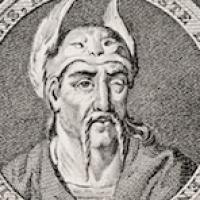 Gaius Julius Civilis, a Romanized Celt, is set free after two years in a Roman prison and journeys north to his homeland at the mouth of the Rhine River. It is 69 AD.
Gaius Julius Civilis, a Romanized Celt, is set free after two years in a Roman prison and journeys north to his homeland at the mouth of the Rhine River. It is 69 AD.
Civilis seethes, not only for the two years lost, but also for the death of his brother, killed when the two of them were arrested under charges of treason. Now, neither Nero’s successor, Galba, nor the soldiers escorting Civilis, knows that the coming year will see three more emperors, a civil war, and a revolt against the Empire led by this newly freed man. While traveling north, Rokus, as Civilis is called by his tribe, struggles with his allegiance to his people, the Batavians, and the Empire he has served for twenty-five years as a commander of auxiliary troops in Britannia. As he picks through the thicket of his memory and the grandeur of all things Roman, the picture of his destiny emerges. It’s a slow process, but one that gets catalyzed by the majesty of the terrain, a little orphaned girl, Veleda, memories of his culture of origin, and the ongoing struggle for and against the iron grip of Rome.
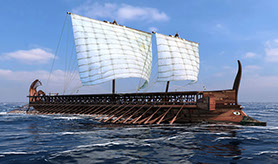 Marius, a seasoned veteran in charge of the select bodyguard of men, first ushers Rokus to Arles, Gaul, by ship, a voyage marred by a pirate attack and the resultant violence. Afterward, Rokus weighs his own destructive ways and the future of Batavia. He struggles to reconcile himself with his history as a commander for Rome and his feeling that he is being called to save his people and their lands. He disagrees with the forced conscription of Batavian men, but knows Rome’s power is vast and uncompromising. He sees the absorption of Gallic and Germanic tribes into the Roman way, and condemns the erasure of tribal culture when allegiances are enforced.
Marius, a seasoned veteran in charge of the select bodyguard of men, first ushers Rokus to Arles, Gaul, by ship, a voyage marred by a pirate attack and the resultant violence. Afterward, Rokus weighs his own destructive ways and the future of Batavia. He struggles to reconcile himself with his history as a commander for Rome and his feeling that he is being called to save his people and their lands. He disagrees with the forced conscription of Batavian men, but knows Rome’s power is vast and uncompromising. He sees the absorption of Gallic and Germanic tribes into the Roman way, and condemns the erasure of tribal culture when allegiances are enforced.
 Rokus’ romance with Veleda assumes a new dimension when her sacrifices produce a series of auguries that tell of Rokus’ future as a revolutionary. As Rokus comes to terms with his destiny as a leader of his people, the word has already spread as a result of Veleda’s prescience.
Rokus’ romance with Veleda assumes a new dimension when her sacrifices produce a series of auguries that tell of Rokus’ future as a revolutionary. As Rokus comes to terms with his destiny as a leader of his people, the word has already spread as a result of Veleda’s prescience.
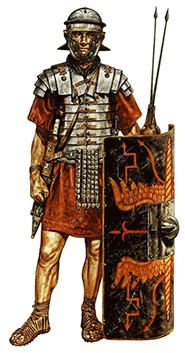 Rokus’s brother’s assassin is a member of the escort and, acting out a personal vendetta against Rokus, attempts to kill him. Rokus manages to slay the soldier, but not before the man gouges his eye. During convalescence in the river barge plying the Rhone River northward to Lyon, Rokus questions Marius’ actions, from the roundabout route they’re taking north, to the strongbox that accompanies the trip, to his long absences. Marius, an old comrade from Britannia, eventually reveals the deal he’s made with senators––Rokus is to settle in the north to train German tribesmen into soldiers to fill the ranks of senators’ private armies. Marius will be handsomely rewarded with land and treasure. Rokus decides to play along, if only to buy time, while Otho, the new emperor, and Vitellius, the bullish emperor-to-be, prepare for battle.
Rokus’s brother’s assassin is a member of the escort and, acting out a personal vendetta against Rokus, attempts to kill him. Rokus manages to slay the soldier, but not before the man gouges his eye. During convalescence in the river barge plying the Rhone River northward to Lyon, Rokus questions Marius’ actions, from the roundabout route they’re taking north, to the strongbox that accompanies the trip, to his long absences. Marius, an old comrade from Britannia, eventually reveals the deal he’s made with senators––Rokus is to settle in the north to train German tribesmen into soldiers to fill the ranks of senators’ private armies. Marius will be handsomely rewarded with land and treasure. Rokus decides to play along, if only to buy time, while Otho, the new emperor, and Vitellius, the bullish emperor-to-be, prepare for battle.
Once, in the outskirts of a town on the Rhone River, Rokus and Marius join an impromptu dance festival. The stirring Rokus feels toward his people grows. The music buoys all spirits, energizes all feet. Even Marius joins the dancing ring and flirts with the women. As the fires roar and the music and dance reach new heights, a unit of Roman soldiers arrives to squelch the party. They disperse everyone with stick and lash. Days later, Rokus takes a horseback ride into the forest. This sojourn ends when he comes upon the remains of the slaughtered dance troop. The site has the Roman signature everywhere, and now Rokus feels evermore animosity for the ubiquitous might of the Empire.
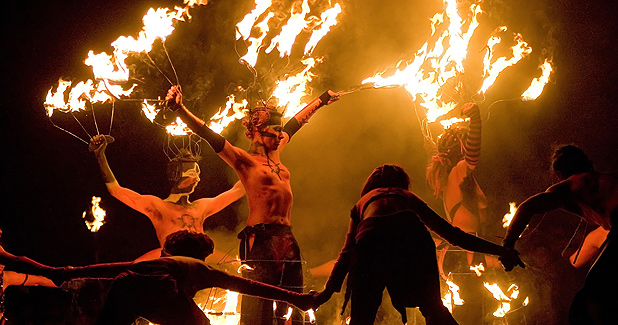
The entourage leaves their barge on the Rhone River, and rides up the eastern mountains toward Lake Geneva. Rokus experiences a further awakening. The splendor of rivers, lakes, and forests rouses in him tenderness not felt since his youth, so now his hostility toward Rome becomes tempered by his affection for nature, the seasons, his tribal culture, and recollections of his youth when he let his heart sing.
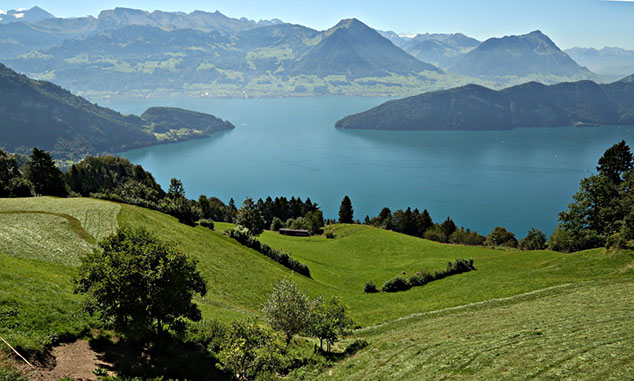

 After coming upon a hamlet and breaking up a raid by Germanic tribesmen from the distant east, Rokus rescues Ulla, a hamlet girl raped and distraught. He is able to comfort the girl eventually, and becomes a father figure to her as he brings her into his world. Presently, Ulla displays that she, like Veleda, has the gift of sight. Joining the entourage is a group of errant Batavian warriors who have deserted the southern Roman army. They join Marius and Rokus and the group of Roman soldiers and Batavians continues. Ulla becomes more attached to Rokus.
After coming upon a hamlet and breaking up a raid by Germanic tribesmen from the distant east, Rokus rescues Ulla, a hamlet girl raped and distraught. He is able to comfort the girl eventually, and becomes a father figure to her as he brings her into his world. Presently, Ulla displays that she, like Veleda, has the gift of sight. Joining the entourage is a group of errant Batavian warriors who have deserted the southern Roman army. They join Marius and Rokus and the group of Roman soldiers and Batavians continues. Ulla becomes more attached to Rokus.
As Rokus weighs the Romans’ plan for him, he grows evermore determined to lead his people to justice. But the entourage suddenly comes upon a barbarian attack on a Roman river port. They charge into the fray in an effort to salvage the day for the town. Ulla gets separated, and by battles’ end, Rokus becomes desperate to find her. Ultimately, he discovers her in the outskirts being assaulted by one of the raiders. Rokus kills him, but Ulla, a victim again, withdraws, while Rokus is torn by regret. Eventually, Rokus, Ulla, and his countrymen leave Marius after this battle, and advance along the Rhine River while Marius and his charges renew themselves at the Roman fort.
 The Batavians cross the Rhine into hostile Germania because they know Marius won’t venture there. Ulla reveals her uncanny gifts of divination and saves the Batavians from warlike tribesmen on the east shore. After several days they come upon a Roman party despoiling a hamlet on the east shore. Rokus is disgusted at the martial brutality as the place burns and all residents—man, woman, and children—are destroyed. Soon Rokus leads his group back across the river to enter a major Roman garrison town for supplies.
The Batavians cross the Rhine into hostile Germania because they know Marius won’t venture there. Ulla reveals her uncanny gifts of divination and saves the Batavians from warlike tribesmen on the east shore. After several days they come upon a Roman party despoiling a hamlet on the east shore. Rokus is disgusted at the martial brutality as the place burns and all residents—man, woman, and children—are destroyed. Soon Rokus leads his group back across the river to enter a major Roman garrison town for supplies.
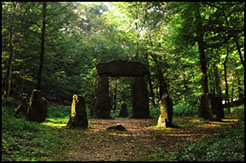 A showdown occurs between Marius and Rokus. The Roman will not allow his plan to fail, and Rokus slays him. Now committed to accepting the kingship of his people, Rokus delivers Ulla to Veleda, and then returns to Batavia, where he is duly crowned. As Rokus accepts his destiny as the Batavian king, he learns of the civil war between Otho, and Vitellius, governor of the northern legions, as well as the rumors of Vespasian, general of Roman legions in the Middle East, coming to Rome to take the throne from the victor. In the end, Rokus amasses his tribe in a sacred grove where they swear an oath to battle the Romans, while Veleda sends emissaries across the lands with her predictions of Rokus’s victory.
A showdown occurs between Marius and Rokus. The Roman will not allow his plan to fail, and Rokus slays him. Now committed to accepting the kingship of his people, Rokus delivers Ulla to Veleda, and then returns to Batavia, where he is duly crowned. As Rokus accepts his destiny as the Batavian king, he learns of the civil war between Otho, and Vitellius, governor of the northern legions, as well as the rumors of Vespasian, general of Roman legions in the Middle East, coming to Rome to take the throne from the victor. In the end, Rokus amasses his tribe in a sacred grove where they swear an oath to battle the Romans, while Veleda sends emissaries across the lands with her predictions of Rokus’s victory.
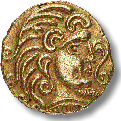
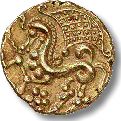
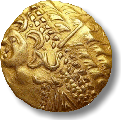
© 2016 Rick Deragon